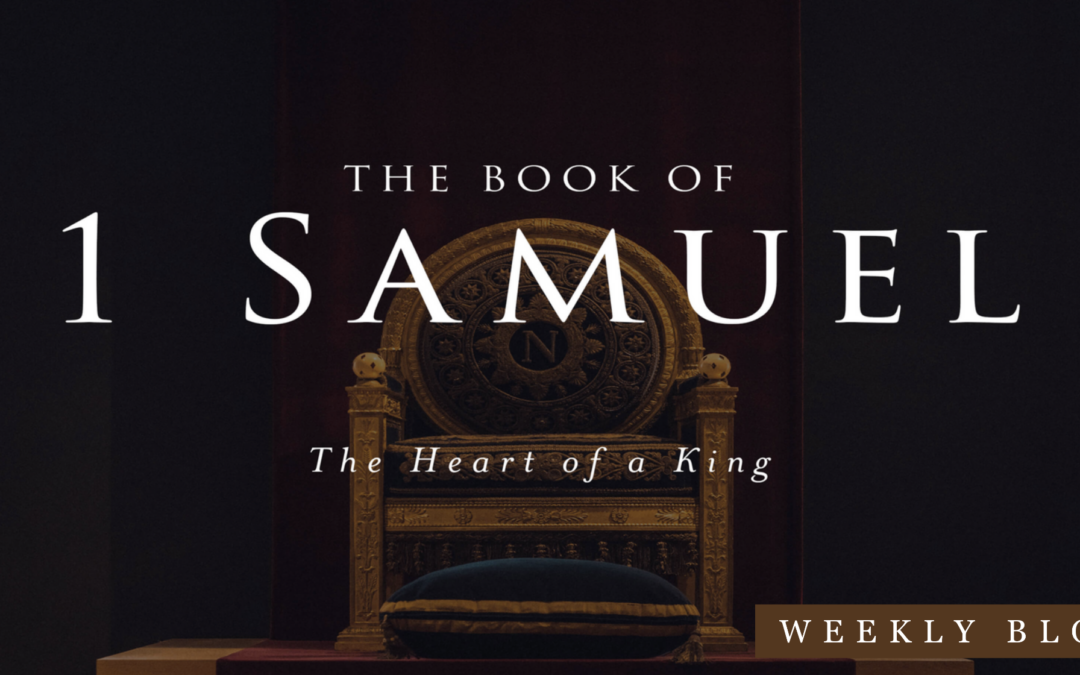THE BOOK OF 1 SAMUEL—Week 7
Crisis 7: Pride and Self-Sufficiency (1 Sam. 13-15)
Saul started off so well. He had everything going for him. He came from a well-to-do family. He was good-looking. He was physically imposing, standing head and shoulders taller than any other man in Israel. Samuel, whom he was replacing as the political leader of Israel, loved him and mentored him. He had the support of his people and his family. He led his people to tremendous victories. Yet, as we see in this week’s passage, things began to unravel rather quickly for Saul. Saul moved from being a man filled with the Holy Spirit to being a man consumed by pride and self-sufficiency. In doing so, Saul moved from being the Lord’s anointed, called to build God’s kingdom to an angry, paranoid leader consumed with building his own kingdom. It is an easy trap to fall into, and one Scripture repeatedly warns us to avoid. Personally, the most haunting thing about this story is that Saul never really figures out what has happened until it is too late, and by the time that happens, Saul is more concerned about maintaining his standing with the people than he is with his standing with God. The rest of Saul’s kingship will be spent trying to thwart God’s plans in favor of his own. Let’s examine the warning signs of pride that Saul exhibited leading up to God rejecting him as king.
- Saul showed impatience with God and others (Ch. 13:7-14). To be clear, Saul and his men were facing dire circumstances. He was facing a seemingly overwhelming enemy with superior numbers and technology. However, it was not the overwhelming enemy that moved Saul; it was the people losing confidence in him that spurred him into taking matters into his own hands. Though Saul sought to portray his actions as righteous and justified (seeking God’s favor before taking military action), Saul was seeking God’s favor and direction by directly disobeying God’s law. He then tried to blame Samuel for his sinful actions! That’s why this indicator of pride is both so insidious and so telling. It is insidious in that we can usually find a multitude of justifications for our actions, and those justifications usually involve what we perceive to be the failures of others. It is telling in that when we show such impatience, we often feel that we are the only one with the answers to the problem being faced. We take it upon ourselves to step in and save the day when others seemingly fail.
- Saul made rash, selfish decisions that were hurtful to others (Ch. 14:24). Apparently, Saul learned nothing from the story of Jephthah and his foolish vow (Judges 11:29-40), for he made a similar vow that drove the people to ravenously feast on captured animals in violation of Mosaic Law and that nearly cost him his son. Notice the language Saul used in the vow he forced on his people: “Cursed be anyone who eats food before evening comes, before I HAVE AVENGED MYSELF ON MY ENEMIES.” Pride drives us to personalize every difficulty we face as a personal affront, and when we approach circumstances with such a mindset, we tend to make decisions based on anger or revenge. More often than not, decisions made with such a mindset have unintended consequences that are hurtful to others, especially those we love.
- Saul became more concerned with his honor than God’s commands (Ch. 15:12). In Chapter 15 we see the series of events that led to Saul’s eventual downfall. Under Saul’s leadership, the Israelites had won a series of victories, even defeating the mighty Philistines. Though Saul was eager to take credit for these victories, Scripture tells us it had nothing to do with him. It was God who delivered the Israelites. Yet, when Samuel arrived on the scene after the defeat of the Amalekites, Saul was not building a memorial to God; he was building a memorial to himself. The place Saul chose for the memorial was Mt. Carmel, a significant, holy mountain in the area. The name meant “God’s Garden”, and it would be the place where Elijah would defeat the prophets of Baal many years later. This was no easy journey for the Israelites, for they had to travel many miles from the site of the battle to Mt. Carmel with the illicit spoils they had taken. For those many miles Saul traveled with the sound of his disobedience bleating in his ears. Yet, nothing would stop him from honoring himself in the Garden of God. Saul was so deluded by his pride that he was actually shocked when Samuel announced that God was not pleased with him. Saul had confused God’s grace and mercy with God’s pleasure with his actions.
There’s a reason that when Jesus taught us to pray, he included the line “Your kingdom come, your will be done, on earth as it is in heaven.” That is our mission. We are to be building God’s kingdom, not our own. Saul lost sight of that, and it cost him and his family dearly. Let us ever be watchful for the signs of pride in our lives so that we can be faithful in building God’s kingdom, rather than our own.
Questions:
- Where are the areas where you tend to be impatient with God and others and take matters into your own hands? How do you tend to justify doing so?
- Why is it important not to personalize our difficulties? How does God’s admonition in 1 Sam. 8:6-9 help us process such feelings? How does feeling offended reveal a prideful heart?
- How do we know that Saul’s repentance in Ch. 15 is not genuine? Has there ever been a time when you were more concerned about your reputation than true restoration?






